Who is visiting care for?

Home visits for adults of all ages, nationwide
Visiting care is for anyone who need help to remain independent in their own home.
It may be that you have lost confidence following a fall or that you need extra support after a period in hospital. Or maybe your care needs have increased and you would like a little more support on a regular basis. Whatever your need, the extra help our home care services provide can make all the difference.
With Helping Hands, visiting care can start from as little as 30 minutes a week to up to several visits a day. We believe in offering a truly quality service, providing the care industry’s renowned carer training and full ongoing support to each of our carers so they can give the very best level of care to you.
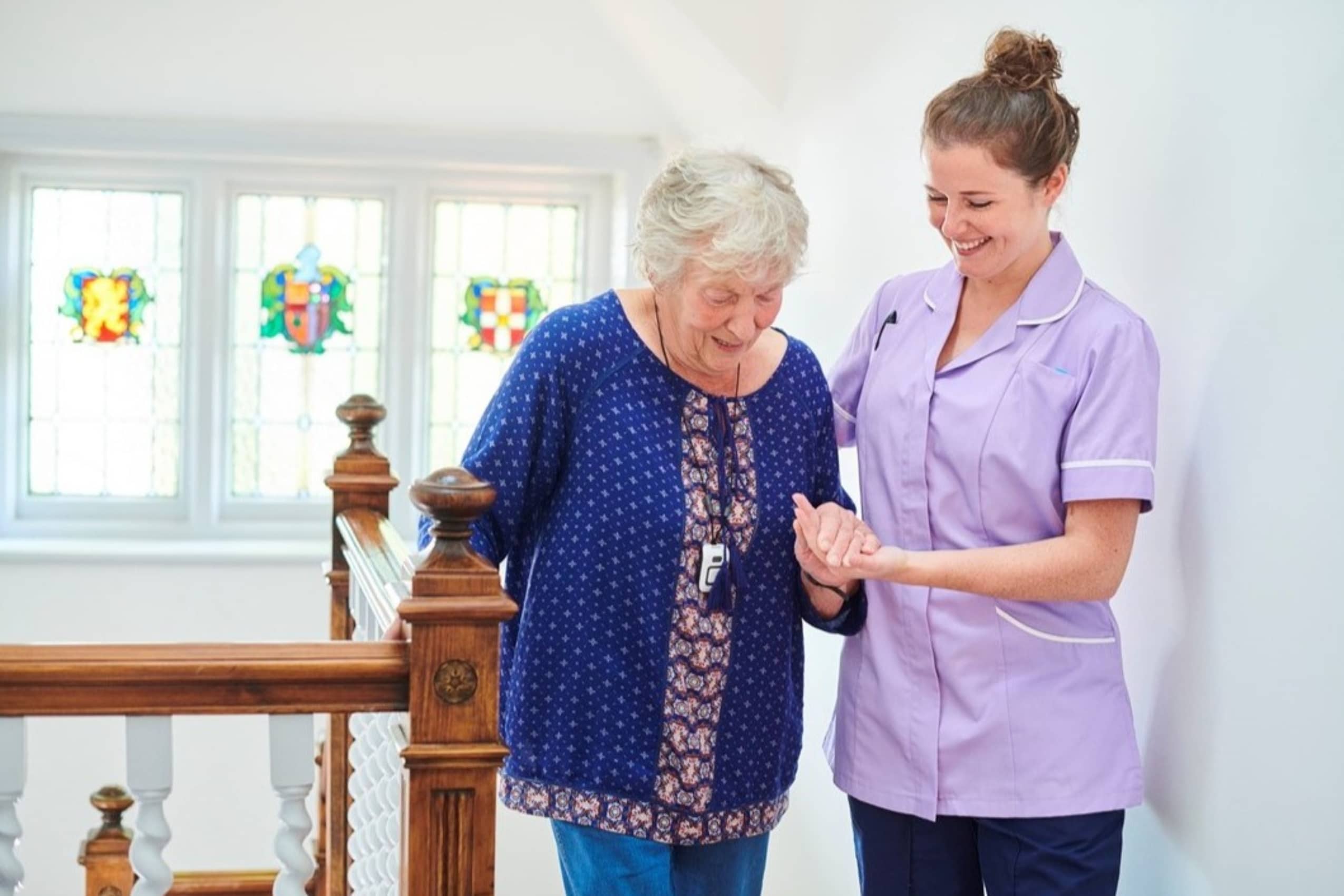
Who visiting care is for
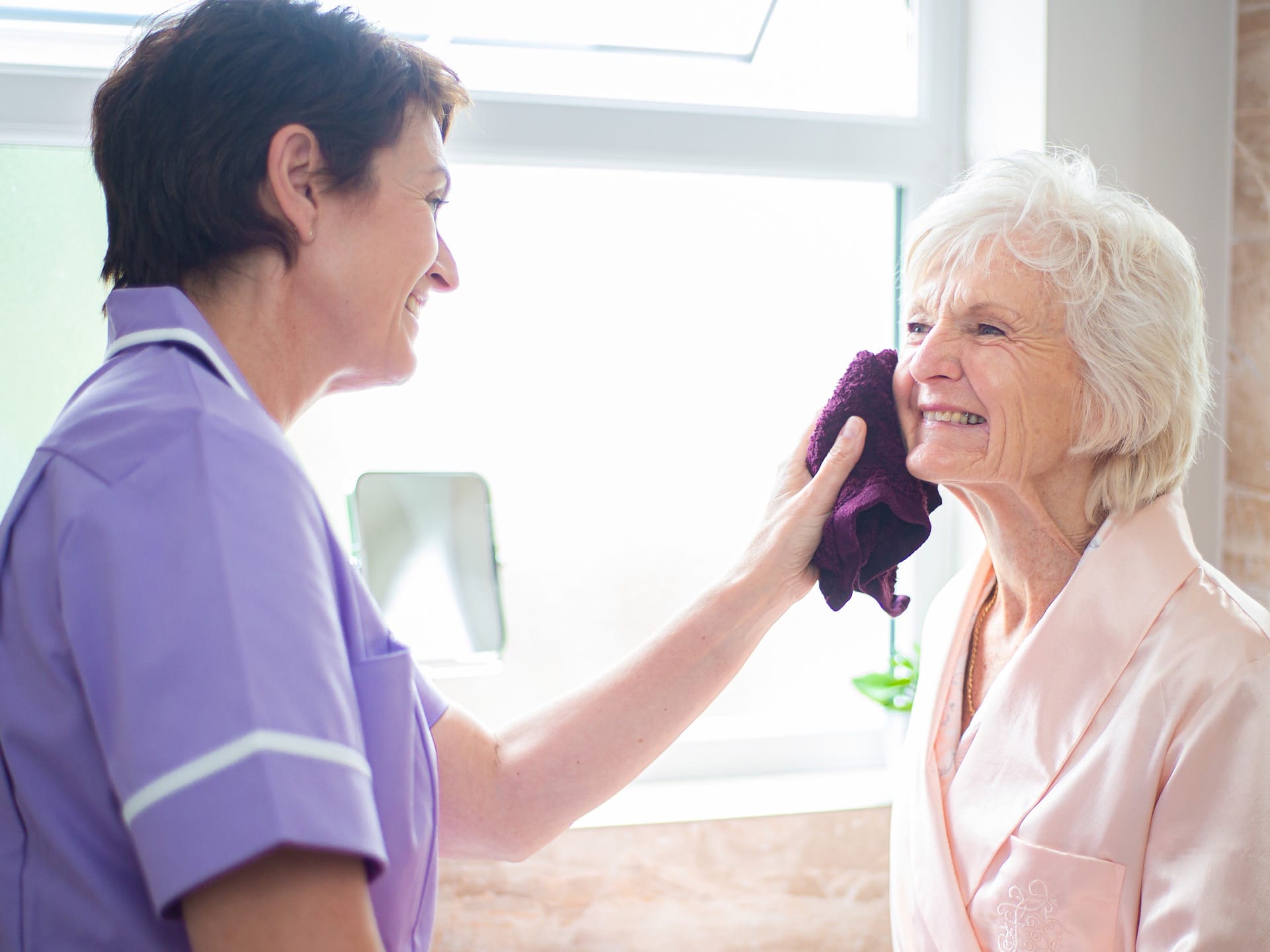
From the reassurance that someone is with you right through to full personal care, whatever your need – we can help.
We are there to encourage, prompt and remind you about the things you can still do and want to do for yourself whilst being able to provide full support for the things you can no longer manage. We can support with washing, dressing, continence care, bathing, showering, hair and make-up – whatever you need in order to feel good about yourself.
At Helping Hands, we do things your way, to your preferences. And we provide the flexibility of visits from 30 minutes a week to up to a few visits a day and even full-time live-in support. With us, home care can easily lessen or grow if or when your needs change.


Care in the home for preventing falls
At Helping Hands we believe that prevention is better than cure. Many of our customers are concerned about falling, and often this is the cause of great anxiety for them and their families. Having a visiting carer popping in during the day and evening is often enough to provide reassurance, and of course during their visit they can help with aspects of daily living to reduce your vulnerability to falling. Having a carer visiting does also mean that if you have fallen, our carer can raise the alarm and seek help for you immediately.
Falls are a major concern because of the implications and long term damage they can have, especially to someone who is already frail. Age UK, the nation’s champions for older people, run an annual campaign to raise awareness about falls. They say, “A fall can destroy confidence, increase isolation and reduce independence”.
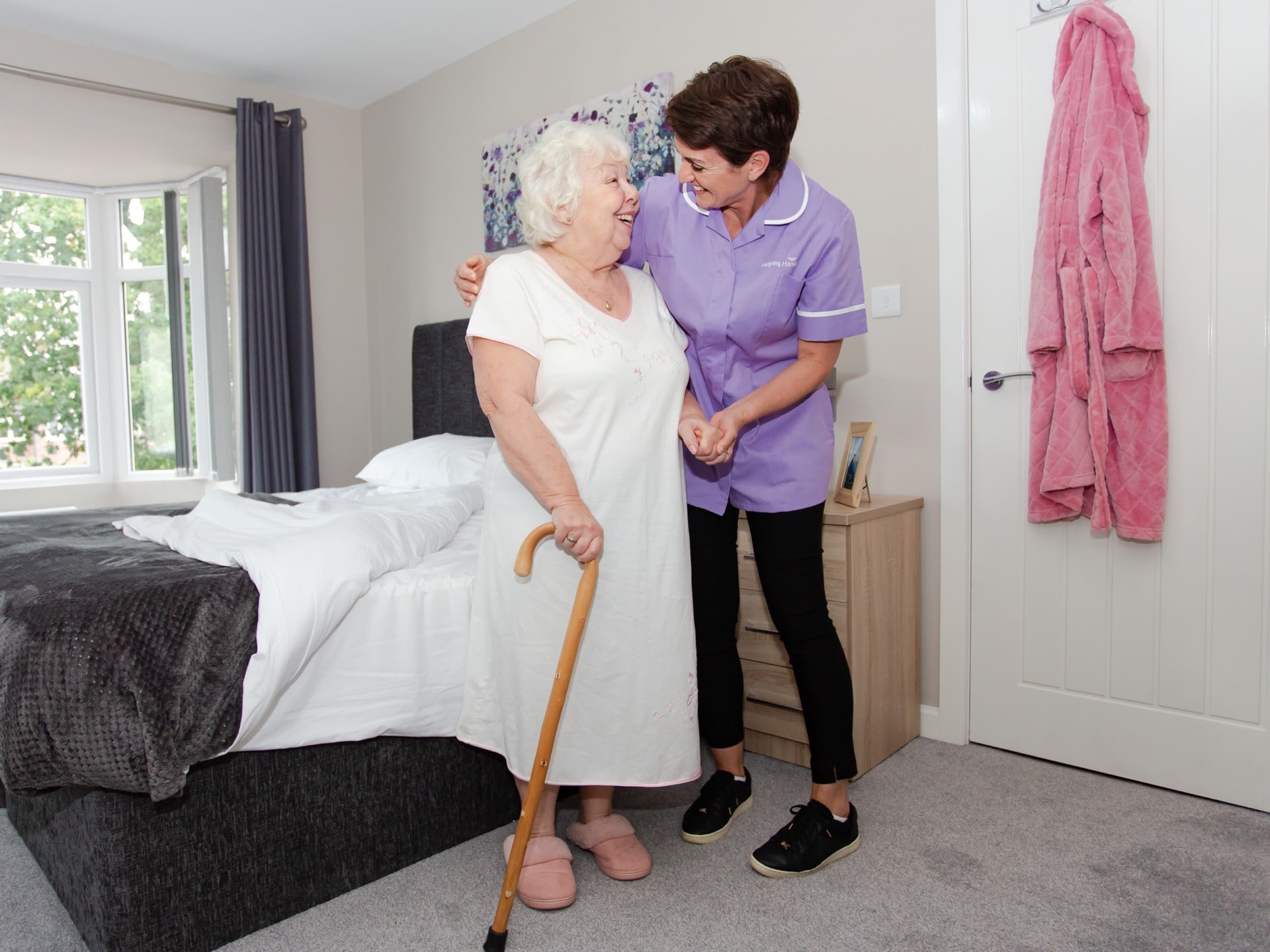
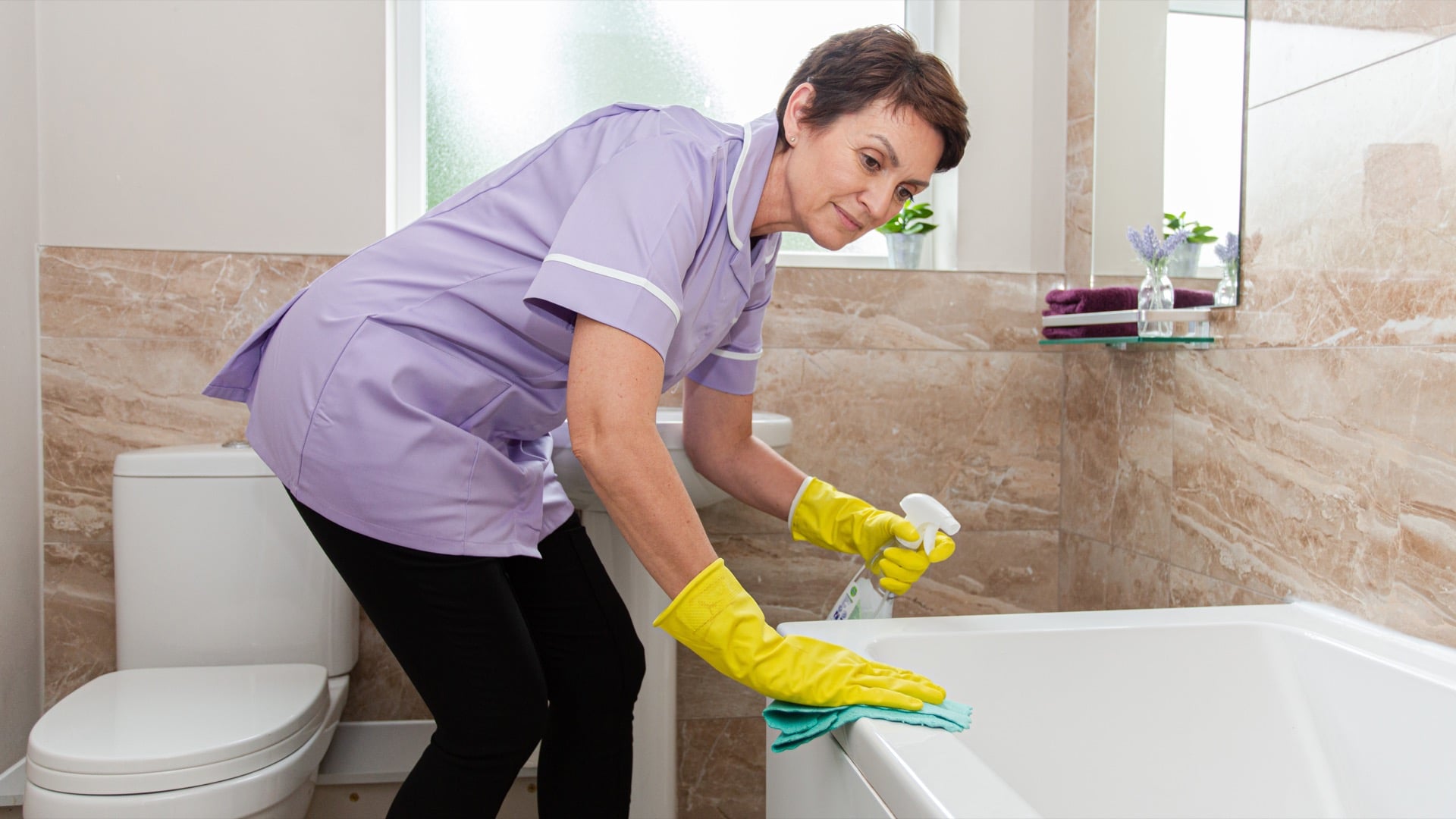
Providing help around the house
You may find you are struggling to keep on top of things at home – perhaps you’re not quite as mobile as you used to be, or you’re living with a condition that prevents you from doing as much as you’d like. A visiting carer is perfect to help with the more physical tasks around the house that you might be struggling with, allowing you to continue living in a warm, clean and pleasant environment.
Tasks your carer can help with include:
Cleaning
A carer can help with vacuuming, dusting, tidying, and keeping your kitchen and bathroom clean
Preparing meals
Your carer will be able to prepare your favourite meals, snacks and drinks at the times that suit you
Laundry
Having a visiting carer means you don’t have to worry about keeping on top of your laundry
Errands and shopping
Your carer will be able to run errands, as well as collecting shopping and prescriptions on your behalf
Medication
All of our carers receive training in providing safe support with medication, including organising and administering it
Pet care
Whether you need someone to walk them, take them to the vet or feed them, we can help look after your furry friend(s)
From family care to professional care
Perhaps you are currently supported by family, friends or neighbours and your needs have increased. It is often at this stage that our customers come to us in order to put care arrangements in place.
A survey run by Carers Week found that two in five unpaid carers are putting off medical treatment to care for a loved one. We can support you to readdress the balance. What’s more, your family can remain as involved as you want them to be while one of our professional carers regularly visits to meet your requirements.
The benefit of visiting care, and our live-in care services, is that family can take a step back and have a well-deserved break. We can support with short regular visits or longer sits, maybe for a whole afternoon or overnight. We can even provide live-in respite care, on a temporary basis.

After a hospital discharge

The urgent need for care is often placed upon families when a discharge from hospital is reliant on having the appropriate level of care and support in place.
With branches across England and Wales, we have a local care specialist who can react quickly in these situations and arrange for a visiting carer to help with recuperation, convalescence and rehabilitation. Liaising with the hospital discharge team and other care professionals involved on your behalf, they can arrange for a safe and prompt return home.
One of our visiting carers will work alongside district nurses and occupational therapists when health can be at its most fragile, building confidence and strength day-by-day. We can even assist in facilitating a discharge home from hospital by ensuring that any equipment or modifications to the house are in place.
For dementia care at home
At Helping Hands, all of our carers receive specialist dementia care training.
With nearly 30 years’ experience in providing home care, we understand the very specific daily challenges of living with and caring for someone with dementia. When you choose Helping Hands, it will be with the reassurance that appropriate dementia care will be provided at home. A visiting carer will be sensitive to your individual needs, have a good level of understanding of your condition and be able to provide as much reassurance, support and guidance as required.
Working in partnership with Dementia UK, we have developed special resources to help carers and families alike engage and orientate those living with dementia at home.

We can support all types of dementia, including:
Vascular dementia
Lewy body dementia
Frontotemporal dementia
Alzheimer's
We've put together a dementia toolkit to help you support a loved one with dementia:
Dealing with a loss of confidence
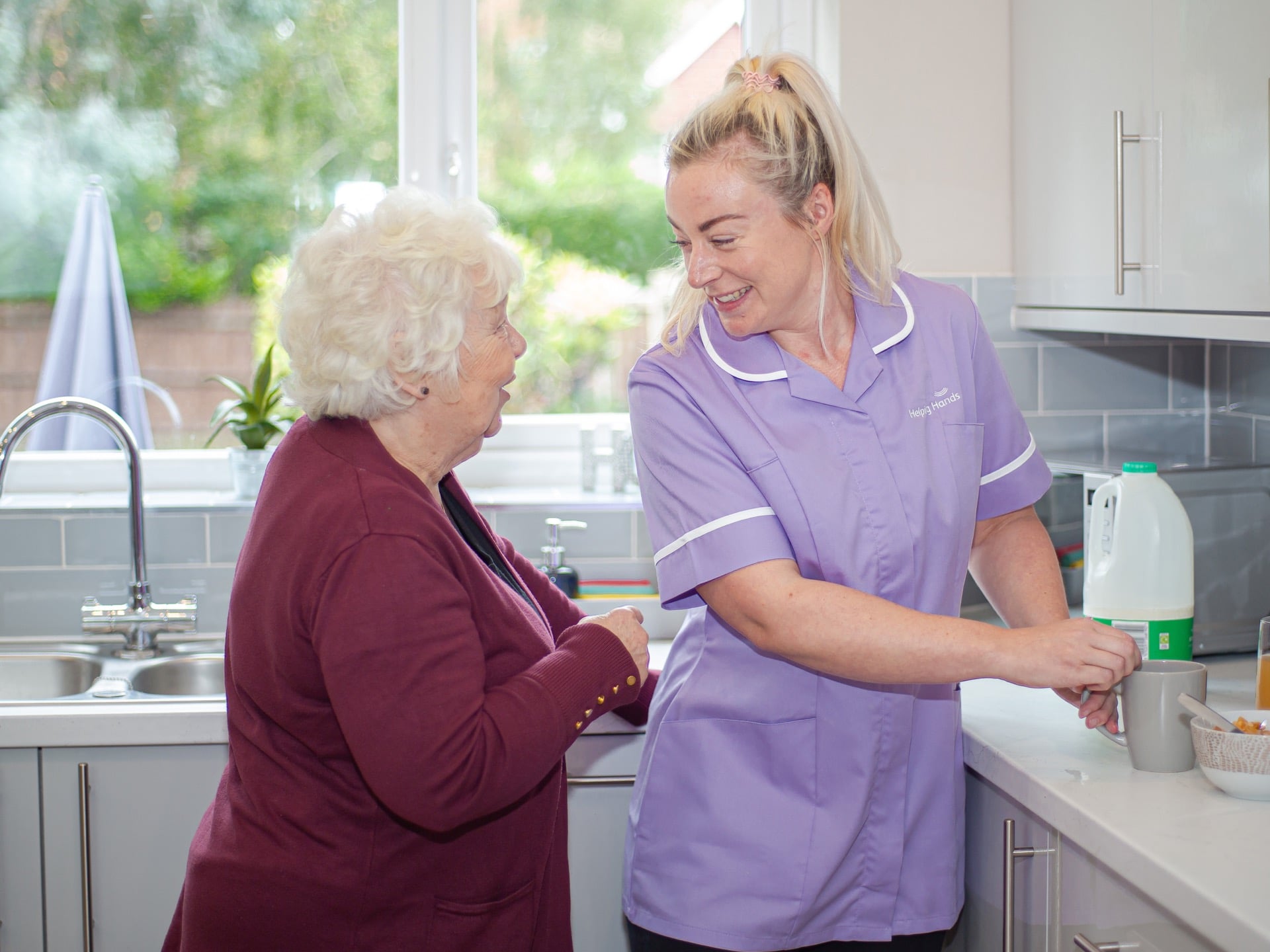
A carer can help you to regain your confidence and independence.
It’s only natural that your confidence goes when you are unable to complete the everyday tasks you always have done. Our carers put your needs and expectations at the centre of everything that they do, empowering you to take control and encouraging and promoting your independence at all times.
If it is reassurance that you need, our visiting carers will work with you, giving you the extra support and care you need and involving you every step of the way. This may involve an overnight stay to attend to any night needs and give the confidence that somebody else is in the house. As you gain in confidence we can reduce the level of care we provide.
Fully regulated by the CQC / CIW
Here at Helping Hands, our home care services are fully managed and regulated by the Care Quality Commission (CQC).
From your very first phone call to our friendly team, every aspect of your home care service is independently monitored and regulated by the CQC and Care Inspectorate Wales (CIW).
How to arrange visiting care
We aim to make it easy to arrange the support you want so that we can focus on what really matters: your care needs. Speak to our team today to begin your journey.
Speak to our team
Call our team of experts to talk through your options and any questions you may have
Free home care assessment
Your local Helping Hands manager will visit you to discuss your care requirements
Find your carer
We’ll help to match you with a carer who meets your preferences and has the right skills
Page reviewed by Sarika Dhillon, Regional Care Director, on November 10, 2021.